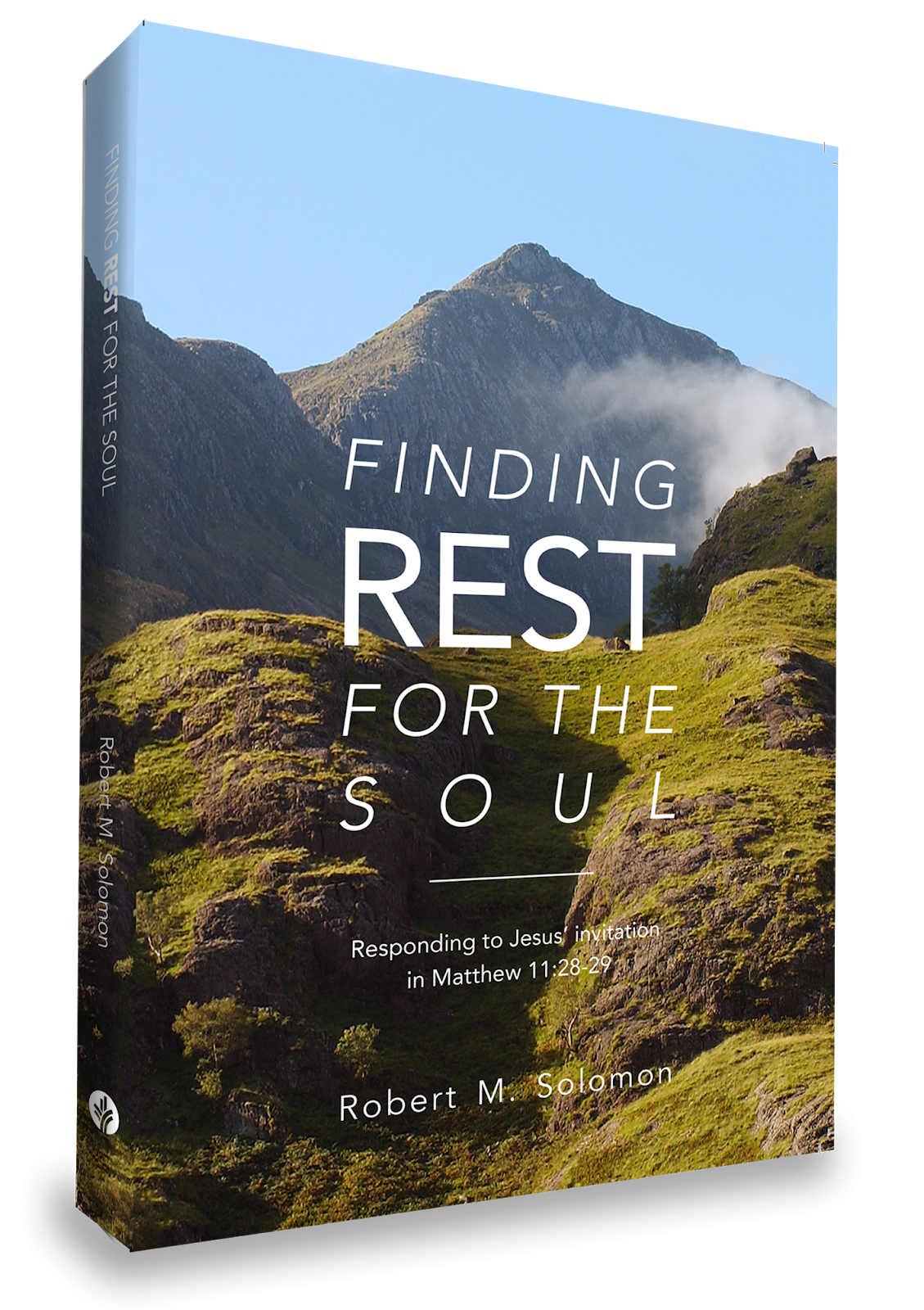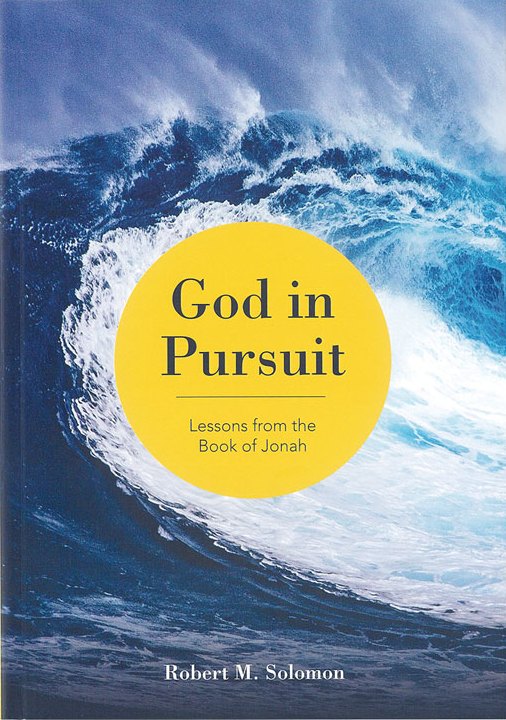By Robert M. Solomon, Bishop of the Methodist Church in Singapore from 2000 - 2012

But what exactly is theological education? What do people do in seminaries such as Trinity Theological College (TTC) in Singapore? For people who have never stepped into a seminary or attended a seminary class, the answer is probably a mystery. Some even consider theological education a waste of time, joking unkindly that the seminary is a cemetery where one's faith gets buried. Such sayings reflect a serious misunderstanding of what theological education is all about, and what it seeks to achieve.
Theologian Edward Farley divides the history of theological education in America into three parts. [1a] The first period spanned the 17th and 18th centuries - a "period of pious (religious) learning" when theological studies were considered to be an "exercise in piety". In the second period, from the 19th century to the middle of the 20th century, theological education was regarded as "specialized learning . . . in which the student is exposed to a considerable number of scholarly methods and disciplines, known now as the departments or areas of the theological school". The third period, in the later half of the 20th century, saw seminaries increasingly focus on "professional education", training professional ministers for specialised functions. In these three periods, emphasis was placed on spirituality, scholarship, and skills respectively.
Problems arise when we start to debate which of these three emphases is the most important and should therefore be the central focus of theological education. From time to time, we hear complaints that a certain pastor lacks skills necessary for effective ministry (such as preaching or leadership), and that the seminary should have focused on developing these. Others may express concern that a pastor's lack of academic rigour (thoroughness) might not meet the needs of his well-educated and cerebral congregation. Yet others may wish that their pastor was "more spiritual".
Actually, the seminary embraces all three goals. It aims to develop spirituality, scholarship, and skill, through a process of spiritual formation and "traditioning". Seminaries seek to shape people by Word and Spirit, and to ground them in the ways of the church's faith. Here is where we must note that theological education takes place not only in the seminary. It also happens at church.
To obtain a basic theological degree, candidates study for about three years in seminary. Before this, however, they would have had many more years in church. The church must therefore put into motion the key processes of spiritual formation and traditioning, even before a candidate enters seminary. The seminary would then build on existing foundations, providing more formal and focused training to prepare the candidate for ministry.
These days, seminaries also provide theological education for laypeople wishing to enlarge their capacity to serve. While this is encouraging, the seminary must not lose sight of its primary role - that of forming pastors and full-time church workers, the ones who should have charge over the education of lay church members.
Indeed, one skill that must be imparted to the seminarian is teaching. One of the pastor's duties is to equip members for service (Ephesians 4:12). Furthermore, the central skill in the pastoral ministry is being "able to teach" (1 Timothy 3:2). A failure of the church's teaching ministry would lead to impoverished members and overburdened seminaries that have to respond to the need for theological education among church members.
How the seminary delivers theological education is another matter we must seriously consider. As I maintain in this chapter, seminaries and formal processes of theological education exist for very good reasons. What I believe we need, however, are more robust system of mentoring and apprenticeship. These processes have precedence in the history of the church and would enrich and complement the seminary's curriculum. I call on church and seminary alike to pay heed.
Theological education takes place both in church and in seminary. Therefore, church and seminary must work together to make theological education work. The seminary has a specific task - to form pastors and church workers "by Master's voice and holy Word", in the words of the TTC anthem. The seminary produces pastor-teachers to educate and equip others in the church. A good understanding of the complementary roles of church and seminary would richly bless both of these entities.
https://blogger.googleusercontent.com/img/b/R29vZ2xl/AVvXsEhczIiKtBb_LtNuYEK9XbOLJov-5_vsJw4ooZMvvRcrlGK4czvzhruo6SKm8NxvlSoTzAprMJ3AQ7rlm8AV9w7QPceC5q5NTmgTuBpZR-oV7dojRumvh9FRnHLAGo_iUbT4jV0ixzPpnjepXiTOsWPwuBfQE6w-FANTVsKjg4J5nUGYmf-naoP4hlmnALk/s960/86f567df37f21fa496c7e77e67bc4553679abbe7_m_11.png
https://storage.ws.pho.to/s2/86f567df37f21fa496c7e77e67bc4553679abbe7_m.jpeg
https://photolab.me/d/41964501
We generally expect pastors and church workers to have completed a programme of formal theological education. And why not? After all, don't we expect doctors, pilots, and bus drivers, in whose hands we often entrust our lives, to have been trained and certified?
But what exactly is theological education? What do people do in seminaries such as Trinity Theological College (TTC) in Singapore? For people who have never stepped into a seminary or attended a seminary class, the answer is probably a mystery. Some even consider theological education a waste of time, joking unkindly that the seminary is a cemetery where one's faith gets buried. Such sayings reflect a serious misunderstanding of what theological education is all about, and what it seeks to achieve.

PHOTO: But what exactly is theological education? What do people do in seminaries such as Trinity Theological College (TTC) in Singapore? For people who have never stepped into a seminary or attended a seminary class, the answer is probably a mystery. Some even consider theological education a waste of time, joking unkindly that the seminary is a cemetery where one's faith gets buried. Such sayings reflect a serious misunderstanding of what theological education is all about, and what it seeks to achieve.
Picture posted by Chinese Christian Network Development Association
https://blogger.googleusercontent.com/img/b/R29vZ2xl/AVvXsEiOT5HXHmsn2cRbpgzYiSpReJK-9Jz13BTnprtsPFq0fcut-LAI1uVPH9jt_AYCeOGVLPcFh0jXRDY6_jMVps-iwX_rVjVWlxa-gCOG5c38cI8crY6oPl_AggbkguZs_l5o2KvVHMoq1FmHvcxnjmbKPTFZSpz_GWkMtVTOMlgDX7FCAIihXAnBtmChVao/s2048/829811_01.jpg
https://church.oursweb.net/church_pics/829811_01.jpg
https://church.oursweb.net/church.php?pkey=829811
Theologian Edward Farley divides the history of theological education in America into three parts. [1a] The first period spanned the 17th and 18th centuries - a "period of pious (religious) learning" when theological studies were considered to be an "exercise in piety". In the second period, from the 19th century to the middle of the 20th century, theological education was regarded as "specialized learning . . . in which the student is exposed to a considerable number of scholarly methods and disciplines, known now as the departments or areas of the theological school". The third period, in the later half of the 20th century, saw seminaries increasingly focus on "professional education", training professional ministers for specialised functions. In these three periods, emphasis was placed on spirituality, scholarship, and skills respectively.
![Theologian Edward Farley divides the history of theological education in America into three parts. [1a]](https://blogger.googleusercontent.com/img/b/R29vZ2xl/AVvXsEjT0GdAtsQPNNYi7LIOQK4fTPuubWSzQ52Hm65hAjiSv55uIc43bWGBqpIRcALR2t-cP781c3X-OW1tBUCecDc_C-MXBXX9RKEr8s1DPRmEIDbLFDABWAC64BSnR2-85JLkOadw0u3-Hi0Nre_Dfcv-vEYL3cBd6lkKX-TcfLODKvFnp3YRV30wciJ4i38/s750/71FtfC9jz6L.jpg)
PHOTO: Theologian Edward Farley divides the history of theological education in America into three parts. [1a] The first period spanned the 17th and 18th centuries - a "period of pious (religious) learning" when theological studies were considered to be an "exercise in piety". In the second period, from the 19th century to the middle of the 20th century, theological education was regarded as "specialized learning . . . in which the student is exposed to a considerable number of scholarly methods and disciplines, known now as the departments or areas of the theological school". The third period, in the later half of the 20th century, saw seminaries increasingly focus on "professional education", training professional ministers for specialised functions. In these three periods, emphasis was placed on spirituality, scholarship, and skills respectively.
Picture posted by Amazon
https://blogger.googleusercontent.com/img/b/R29vZ2xl/AVvXsEjT0GdAtsQPNNYi7LIOQK4fTPuubWSzQ52Hm65hAjiSv55uIc43bWGBqpIRcALR2t-cP781c3X-OW1tBUCecDc_C-MXBXX9RKEr8s1DPRmEIDbLFDABWAC64BSnR2-85JLkOadw0u3-Hi0Nre_Dfcv-vEYL3cBd6lkKX-TcfLODKvFnp3YRV30wciJ4i38/s750/71FtfC9jz6L.jpg
https://m.media-amazon.com/images/I/71FtfC9jz6L.jpg
https://www.amazon.com/stores/Edward-Farley/author/B001IXQ30O?ref=ap_rdr&isDramIntegrated=true&shoppingPortalEnabled=true
Problems arise when we start to debate which of these three emphases is the most important and should therefore be the central focus of theological education. From time to time, we hear complaints that a certain pastor lacks skills necessary for effective ministry (such as preaching or leadership), and that the seminary should have focused on developing these. Others may express concern that a pastor's lack of academic rigour (thoroughness) might not meet the needs of his well-educated and cerebral congregation. Yet others may wish that their pastor was "more spiritual".

PHOTO: Problems arise when we start to debate which of these three emphases is the most important and should therefore be the central focus of theological education. From time to time, we hear complaints that a certain pastor lacks skills necessary for effective ministry (such as preaching or leadership), and that the seminary should have focused on developing these. Others may express concern that a pastor's lack of academic rigour (thoroughness) might not meet the needs of his well-educated and cerebral congregation. Yet others may wish that their pastor was "more spiritual".
Picture posted by Faith On View
https://blogger.googleusercontent.com/img/b/R29vZ2xl/AVvXsEgVzKDwjpCgBeZxyPm-xT4CDgM5kXA72CEGCTP5MR-y25gjEQxsKRzrqvUBZhftJbx8s4p3b47-b6z9s_tU6aqVZPYqcXzA0w4kC4IM7w-TaNxaQCWkpta3BcFL1k5cAOYLk7DabXUJ9pthDjJelzSo8P3zlgjzbdTtLCt6zEboY820jx0_qDeNSOcQdH4/s1024/A_cozy_study_room_scene_as_jpeg.jpg
https://www.faithonview.com/wp-content/uploads/2024/02/A_cozy_study_room_scene_as_jpeg.jpg
https://www.faithonview.com/why-is-theological-education-important/
Actually, the seminary embraces all three goals. It aims to develop spirituality, scholarship, and skill, through a process of spiritual formation and "traditioning". Seminaries seek to shape people by Word and Spirit, and to ground them in the ways of the church's faith. Here is where we must note that theological education takes place not only in the seminary. It also happens at church.

PHOTO: Actually, the seminary embraces all three goals. It aims to develop spirituality, scholarship, and skill, through a process of spiritual formation and "traditioning". Seminaries seek to shape people by Word and Spirit, and to ground them in the ways of the church's faith. Here is where we must note that theological education takes place not only in the seminary. It also happens at church.
Picture posted by Luis Rodriguez
https://blogger.googleusercontent.com/img/b/R29vZ2xl/AVvXsEiHbWT-p7dlg0UXcoWhBsXk-9iz2QjdZvMRJOFyUyuFmiXABQQ1P2B63-qzxgQw0cSAWaRP0Z4GSYRPu7xzFSOiDLoxDkE8fdf2HKHmQn48SdbLiqCBvcuZgUAarUKRRSaWzc6XRX81XTWtziZuBJ4Hl8hv9TLdu8Bk4OxI5-P22SN0-W-bdA5rNcWBRsc/s1024/a71a207633dba8579b536159d7e8ecf3.jpg
https://i.pinimg.com/1200x/a7/1a/20/a71a207633dba8579b536159d7e8ecf3.jpg
https://www.pinterest.com/pin/92675704827810351/
To obtain a basic theological degree, candidates study for about three years in seminary. Before this, however, they would have had many more years in church. The church must therefore put into motion the key processes of spiritual formation and traditioning, even before a candidate enters seminary. The seminary would then build on existing foundations, providing more formal and focused training to prepare the candidate for ministry.

PHOTO: To obtain a basic theological degree, candidates study for about three years in seminary. Before this, however, they would have had many more years in church. The church must therefore put into motion the key processes of spiritual formation and traditioning, even before a candidate enters seminary. The seminary would then build on existing foundations, providing more formal and focused training to prepare the candidate for ministry.
Picture posted by Faith On View
https://blogger.googleusercontent.com/img/b/R29vZ2xl/AVvXsEgHVQ04ZOuz9FNSH0y6urLoe2pEQhy_6QhcXkUrIxYHCSR2-5VdqraUsDFDEx67TsMBfQmJC7icd-Csrg44c_3JOQSGcUy5Q_9YkhhAQtONHw9RtSxZMplFwHNFqO4rf7jVAYjfDvb58p_t0YLnU97EWimS_hD9aI5qFGJ0TPfL-OFuC8N88pcGW3_lKnw/s1024/A_vibrant_group_of_students_as_jpeg.jpg
https://www.faithonview.com/wp-content/uploads/2024/02/A_vibrant_group_of_students_as_jpeg.jpg
https://www.faithonview.com/why-is-theological-education-important/
These days, seminaries also provide theological education for laypeople wishing to enlarge their capacity to serve. While this is encouraging, the seminary must not lose sight of its primary role - that of forming pastors and full-time church workers, the ones who should have charge over the education of lay church members.

PHOTO: These days, seminaries also provide theological education for laypeople wishing to enlarge their capacity to serve. While this is encouraging, the seminary must not lose sight of its primary role - that of forming pastors and full-time church workers, the ones who should have charge over the education of lay church members.
Picture posted by Techno 2040
https://blogger.googleusercontent.com/img/b/R29vZ2xl/AVvXsEjlgBP-iKhKIQPuLgSqF3vrvUy5ecJYObO9ubsQL66ow5e7fF0hXq07WEUZOMIWA0VuLnY9pA_fOb0B7DeVLAUyEeLZgg0h9uvjxiIvfBs3p_xA8Wd8N6fq7oPTZCoQBgE0BN_nbgi6Bn9lWiOaW9PUoGLj4kZayvIVMKFlhis2prsd1aaufvMkSgTUrx8/s736/c6e45c2f8727ece3ba276d55d1789dca.jpg
https://i.pinimg.com/1200x/c6/e4/5c/c6e45c2f8727ece3ba276d55d1789dca.jpg
https://www.pinterest.com/pin/660903314099857342/
Indeed, one skill that must be imparted to the seminarian is teaching. One of the pastor's duties is to equip members for service (Ephesians 4:12). Furthermore, the central skill in the pastoral ministry is being "able to teach" (1 Timothy 3:2). A failure of the church's teaching ministry would lead to impoverished members and overburdened seminaries that have to respond to the need for theological education among church members.

PHOTO: Indeed, one skill that must be imparted to the seminarian is teaching. One of the pastor's duties is to equip members for service (Ephesians 4:12). Furthermore, the central skill in the pastoral ministry is being "able to teach" (1 Timothy 3:2). A failure of the church's teaching ministry would lead to impoverished members and overburdened seminaries that have to respond to the need for theological education among church members.
Picture generated by Freepik AI generator
https://blogger.googleusercontent.com/img/b/R29vZ2xl/AVvXsEgezz6pOaKvi56DgTJ0zUeMjG1nBB0xfuKKPbxktuyfgTKmqgPpd6dN36OJSKv0jeYi4E5LIyJLRRhSS5UcUNIHTVO2ShMMlnHVY2lsnsPwcobTLODj0_zQui7_U7Xjh7rcbgDbAMph-2CXVGYfGdXkmyZAguhDDKXNzZ4hKYzIkPZxqHdOSQnlGt4AR_w/s1152/38787.jpeg
38787.jpeg
https://www.freepik.com/pikaso/ai-image-generator?prompt=kampong&style=noStyle#from_element=landing_tti
How the seminary delivers theological education is another matter we must seriously consider. As I maintain in this chapter, seminaries and formal processes of theological education exist for very good reasons. What I believe we need, however, are more robust system of mentoring and apprenticeship. These processes have precedence in the history of the church and would enrich and complement the seminary's curriculum. I call on church and seminary alike to pay heed.

PHOTO: How the seminary delivers theological education is another matter we must seriously consider. As I maintain in this chapter, seminaries and formal processes of theological education exist for very good reasons. What I believe we need, however, are more robust system of mentoring and apprenticeship. These processes have precedence in the history of the church and would enrich and complement the seminary's curriculum. I call on church and seminary alike to pay heed.
Picture posted by Jim Alexander, Grad Cert Ethics & Legal Studies, BTh, BA Govt & International Relations on 01 March 2024
https://blogger.googleusercontent.com/img/b/R29vZ2xl/AVvXsEivt4MO2vu7vKLNJrL2fNAOrSmtRjDXXWA_5Np5yD5cKDJLp6pT7zXBO_3OkERf7eqLWTAyU0TzXF0dON2DQB31fHeYy0FCg84iVtJ4scqMdGWjIxMrKbWXU_p2BPuBv_NXGBPLDAie0RWTcEeej94kwbPLa7lnw8aAo5AJ9xMxQJmGjhmhrcrk5QQwAYk/s1200/synod-of-dort-john-calvin.jpg
https://cdn.thecollector.com/wp-content/uploads/2024/02/synod-of-dort-john-calvin.jpg
https://www.thecollector.com/john-calvin-controversies/
Theological education takes place both in church and in seminary. Therefore, church and seminary must work together to make theological education work. The seminary has a specific task - to form pastors and church workers "by Master's voice and holy Word", in the words of the TTC anthem. The seminary produces pastor-teachers to educate and equip others in the church. A good understanding of the complementary roles of church and seminary would richly bless both of these entities.

PHOTO: Theological education takes place both in church and in seminary. Therefore, church and seminary must work together to make theological education work. The seminary has a specific task - to form pastors and church workers "by Master's voice and holy Word", in the words of the TTC anthem. The seminary produces pastor-teachers to educate and equip others in the church. A good understanding of the complementary roles of church and seminary would richly bless both of these entities.
Picture posted by J
https://blogger.googleusercontent.com/img/b/R29vZ2xl/AVvXsEiarLpvowX15ETm90rP3FnSNZO1kR3dOExRQDzfzkk0SB53mXPyDSo5CguB7R7kQt1TsaAYoGx02op4qBgpy0VsQL3HK3gjKun_ANBeON5bkJTnIQ-rHDtv0jXEcsmoggadj6ajY5m7FIsthAI4EppcvVw9iRxATbkOrl-eTXb0dp-fDLub-428CNraYCA/s564/c826e5efe80157e0631543ac85266aeb.jpg
https://i.pinimg.com/enabled/1200x/c8/26/e5/c826e5efe80157e0631543ac85266aeb.jpg
https://www.pinterest.com/pin/1407443628217393/

PHOTO: "Dear Lord, Theological education takes place both in church and in seminary. May our church and seminary work together to make theological education work.
May the seminary fulfill its specific task - to form pastors and church workers 'by Master's voice and holy Word'. We pray that the seminary produces pastor-teachers to educate and equip others in the church.
We pray that a good understanding of the complementary roles of church and seminary would richly bless both of these entities.
Through Lord Jesus Christ we pray. Amen."
Picture posted by The Golden Arrow
https://i.pinimg.com/1200x/8a/d9/c0/8ad9c0362242a05e754b0325a4485514.jpg
https://www.pinterest.com/pin/83105555618044546/
Source (book): "Making All Things New", 52 Reflections to Challenge the Way You Live, Chapter 36, "Reflections On Theological Education", Page 189.
By Robert M. Solomon, Bishop of the Methodist Church in Singapore from 2000 - 2012

Reflection - Faithful to the end (Links)
https://veryfatoldman.blogspot.com/2017/06/reflection-faithful-to-end-links.html
"Finding rest for the soul" Responding to Jesus' Invitation in Matthew 11:28-29, © 2016 by Robert M. Solomon

Reflection - Finding rest for the soul (Links)
https://veryfatoldman.blogspot.com/2018/10/reflection-finding-rest-for-soul-links.html
"God in Pursuit" Lessons from the Book of Jonah, © 2016 by Robert M. Solomon

Reflection - God in Pursuit (Links) - PART I-III, posted on Saturday, 10 August 2019
https://veryfatoldman.blogspot.com/2019/08/reflection-god-in-pursuit-links-part-i.html
"God in Pursuit" Lessons from the Book of Jonah, © 2016 by Robert M. Solomon

Reflection - God in Pursuit (Links) - PART IV, posted on Saturday, 10 August 2019
https://veryfatoldman.blogspot.com/2019/08/reflection-god-in-pursuit-links-part-iv.html
"Songs of Christmas", The Stories and Significance of 20 Well-Loved Carols, © 2018 by Robert M. Solomon

Reflection - Songs of Christmas (Links), posted on Friday, 24 April 2020
https://veryfatoldman.blogspot.com/2020/04/reflection-songs-of-christmas-links.html
"Growing Old Gracefully", Following Jesus to the End, © 2019 by Robert M. Solomon

Reflection - Growing Old Gracefully, Part I - III (Links), posted on Wednesday, 09 December 2020
https://veryfatoldman.blogspot.com/2020/12/reflection-growing-old-gracefully-part.html

Reflection - Growing Old Gracefully, Part IV - V (Links), posted on Thursday, 22 April 2021
https://veryfatoldman.blogspot.com/2020/12/reflection-growing-old-gracefully-part_9.html
"Teach Us to Number Our Days", © 2008 by David Roper

Reflection - Number Our Days, Chapter 1 - 40 (Links), posted on Tuesday, 16 November 2021
https://veryfatoldman.blogspot.com/2021/11/reflection-number-our-days-chapter-1-40.html

Reflection - Number Our Days, Chapter 41 - 64 (Links), posted on Wednesday, 16 March 2022
https://veryfatoldman.blogspot.com/2022/03/reflection-number-our-days-chapter-41.html
 Reflection - He Walks with Me (Links), posted on Tuesday, 16 August 2022
Reflection - He Walks with Me (Links), posted on Tuesday, 16 August 2022https://veryfatoldman.blogspot.com/2022/08/reflection-he-walks-with-me-links.html
"Classic Gem: Timeless Devotions from Our Daily Bread Authors", Copyright © 2021 by Our Daily Bread Ministries

Reflection - Classic Gem, Chapter 1 - 45 (Links), posted on 03 April 2023
https://veryfatoldman.blogspot.com/2023/04/reflection-classic-gem-chapter-1-45.html
"Classic Gem: Timeless Devotions from Our Daily Bread Authors", Copyright © 2021 by Our Daily Bread Ministries

Reflection - Classic Gem, Chapter 46 - 90 (Links), posted on Tuesday, 24 October 2023
https://veryfatoldman.blogspot.com/2023/10/reflection-classic-gem-chapter-46-90.html

[1a] Edward Farley, Theologia: The Fragmentation and Unity of Theological Education (Philadelphia: Fortress, 1983), chapter 1.
- https://blogger.googleusercontent.com/img/b/R29vZ2xl/AVvXsEhczIiKtBb_LtNuYEK9XbOLJov-5_vsJw4ooZMvvRcrlGK4czvzhruo6SKm8NxvlSoTzAprMJ3AQ7rlm8AV9w7QPceC5q5NTmgTuBpZR-oV7dojRumvh9FRnHLAGo_iUbT4jV0ixzPpnjepXiTOsWPwuBfQE6w-FANTVsKjg4J5nUGYmf-naoP4hlmnALk/s960/86f567df37f21fa496c7e77e67bc4553679abbe7_m_11.png
- https://storage.ws.pho.to/s2/86f567df37f21fa496c7e77e67bc4553679abbe7_m.jpeg
- https://photolab.me/d/41964501
- https://blogger.googleusercontent.com/img/b/R29vZ2xl/AVvXsEiOT5HXHmsn2cRbpgzYiSpReJK-9Jz13BTnprtsPFq0fcut-LAI1uVPH9jt_AYCeOGVLPcFh0jXRDY6_jMVps-iwX_rVjVWlxa-gCOG5c38cI8crY6oPl_AggbkguZs_l5o2KvVHMoq1FmHvcxnjmbKPTFZSpz_GWkMtVTOMlgDX7FCAIihXAnBtmChVao/s2048/829811_01.jpg
- https://church.oursweb.net/church_pics/829811_01.jpg
- https://church.oursweb.net/church.php?pkey=829811
- https://blogger.googleusercontent.com/img/b/R29vZ2xl/AVvXsEjT0GdAtsQPNNYi7LIOQK4fTPuubWSzQ52Hm65hAjiSv55uIc43bWGBqpIRcALR2t-cP781c3X-OW1tBUCecDc_C-MXBXX9RKEr8s1DPRmEIDbLFDABWAC64BSnR2-85JLkOadw0u3-Hi0Nre_Dfcv-vEYL3cBd6lkKX-TcfLODKvFnp3YRV30wciJ4i38/s750/71FtfC9jz6L.jpg
- https://m.media-amazon.com/images/I/71FtfC9jz6L.jpg
- https://www.amazon.com/stores/Edward-Farley/author/B001IXQ30O?ref=ap_rdr&isDramIntegrated=true&shoppingPortalEnabled=true
- https://blogger.googleusercontent.com/img/b/R29vZ2xl/AVvXsEgVzKDwjpCgBeZxyPm-xT4CDgM5kXA72CEGCTP5MR-y25gjEQxsKRzrqvUBZhftJbx8s4p3b47-b6z9s_tU6aqVZPYqcXzA0w4kC4IM7w-TaNxaQCWkpta3BcFL1k5cAOYLk7DabXUJ9pthDjJelzSo8P3zlgjzbdTtLCt6zEboY820jx0_qDeNSOcQdH4/s1024/A_cozy_study_room_scene_as_jpeg.jpg
- https://www.faithonview.com/wp-content/uploads/2024/02/A_cozy_study_room_scene_as_jpeg.jpg
- https://www.faithonview.com/why-is-theological-education-important/
- https://blogger.googleusercontent.com/img/b/R29vZ2xl/AVvXsEiHbWT-p7dlg0UXcoWhBsXk-9iz2QjdZvMRJOFyUyuFmiXABQQ1P2B63-qzxgQw0cSAWaRP0Z4GSYRPu7xzFSOiDLoxDkE8fdf2HKHmQn48SdbLiqCBvcuZgUAarUKRRSaWzc6XRX81XTWtziZuBJ4Hl8hv9TLdu8Bk4OxI5-P22SN0-W-bdA5rNcWBRsc/s1024/a71a207633dba8579b536159d7e8ecf3.jpg
- https://i.pinimg.com/1200x/a7/1a/20/a71a207633dba8579b536159d7e8ecf3.jpg
- https://www.pinterest.com/pin/92675704827810351/
- https://blogger.googleusercontent.com/img/b/R29vZ2xl/AVvXsEgHVQ04ZOuz9FNSH0y6urLoe2pEQhy_6QhcXkUrIxYHCSR2-5VdqraUsDFDEx67TsMBfQmJC7icd-Csrg44c_3JOQSGcUy5Q_9YkhhAQtONHw9RtSxZMplFwHNFqO4rf7jVAYjfDvb58p_t0YLnU97EWimS_hD9aI5qFGJ0TPfL-OFuC8N88pcGW3_lKnw/s1024/A_vibrant_group_of_students_as_jpeg.jpg
- https://www.faithonview.com/wp-content/uploads/2024/02/A_vibrant_group_of_students_as_jpeg.jpg
- https://www.faithonview.com/why-is-theological-education-important/
- https://blogger.googleusercontent.com/img/b/R29vZ2xl/AVvXsEjlgBP-iKhKIQPuLgSqF3vrvUy5ecJYObO9ubsQL66ow5e7fF0hXq07WEUZOMIWA0VuLnY9pA_fOb0B7DeVLAUyEeLZgg0h9uvjxiIvfBs3p_xA8Wd8N6fq7oPTZCoQBgE0BN_nbgi6Bn9lWiOaW9PUoGLj4kZayvIVMKFlhis2prsd1aaufvMkSgTUrx8/s736/c6e45c2f8727ece3ba276d55d1789dca.jpg
- https://i.pinimg.com/1200x/c6/e4/5c/c6e45c2f8727ece3ba276d55d1789dca.jpg
- https://www.pinterest.com/pin/660903314099857342/
- https://blogger.googleusercontent.com/img/b/R29vZ2xl/AVvXsEgezz6pOaKvi56DgTJ0zUeMjG1nBB0xfuKKPbxktuyfgTKmqgPpd6dN36OJSKv0jeYi4E5LIyJLRRhSS5UcUNIHTVO2ShMMlnHVY2lsnsPwcobTLODj0_zQui7_U7Xjh7rcbgDbAMph-2CXVGYfGdXkmyZAguhDDKXNzZ4hKYzIkPZxqHdOSQnlGt4AR_w/s1152/38787.jpeg
- 38787.jpeg
- https://www.freepik.com/pikaso/ai-image-generator?prompt=kampong&style=noStyle#from_element=landing_tti
- https://blogger.googleusercontent.com/img/b/R29vZ2xl/AVvXsEivt4MO2vu7vKLNJrL2fNAOrSmtRjDXXWA_5Np5yD5cKDJLp6pT7zXBO_3OkERf7eqLWTAyU0TzXF0dON2DQB31fHeYy0FCg84iVtJ4scqMdGWjIxMrKbWXU_p2BPuBv_NXGBPLDAie0RWTcEeej94kwbPLa7lnw8aAo5AJ9xMxQJmGjhmhrcrk5QQwAYk/s1200/synod-of-dort-john-calvin.jpg
- https://cdn.thecollector.com/wp-content/uploads/2024/02/synod-of-dort-john-calvin.jpg
- https://www.thecollector.com/john-calvin-controversies/
- https://blogger.googleusercontent.com/img/b/R29vZ2xl/AVvXsEiarLpvowX15ETm90rP3FnSNZO1kR3dOExRQDzfzkk0SB53mXPyDSo5CguB7R7kQt1TsaAYoGx02op4qBgpy0VsQL3HK3gjKun_ANBeON5bkJTnIQ-rHDtv0jXEcsmoggadj6ajY5m7FIsthAI4EppcvVw9iRxATbkOrl-eTXb0dp-fDLub-428CNraYCA/s564/c826e5efe80157e0631543ac85266aeb.jpg
- https://i.pinimg.com/enabled/1200x/c8/26/e5/c826e5efe80157e0631543ac85266aeb.jpg
- https://www.pinterest.com/pin/1407443628217393/
- https://depositphotos.com/upscaler.html?utm_source=newsletter&utm_medium=email&utm_term=button2&utm_campaign=ntf_upscaler&utm_content=en&iterable_campaign=2704095&iterable_template=3704971
- https://blogger.googleusercontent.com/img/b/R29vZ2xl/AVvXsEh0ZmXhlQ3sNHO1OAysXPmR1Ixq1rSqIakLvT53wSGDIUXnSbI5gKTbQzpRu6WOjvoheSPZy9y1pEpfdnLC1VCu9t7l8_RTIeLcpj0ENK7RlsH0D84cBOiS5C5nRuErdCT-i6SoOIUijlAIMoooRPNfjGkyC5mLlg33OM9_NR7KZYWKWeH6zVC-i6EsTXU/s1522/8ad9c0362242a05e754b0325a4485514-870x1522.jpg
- https://i.pinimg.com/1200x/8a/d9/c0/8ad9c0362242a05e754b0325a4485514.jpg
- https://www.pinterest.com/pin/83105555618044546/









































.jpg)
.gif)
.jpg)
























































